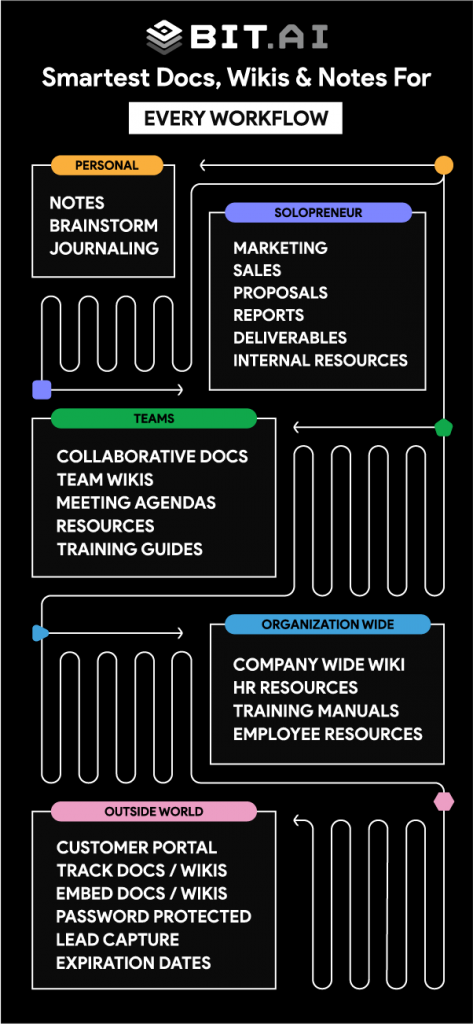Have you ever wondered about the impact your favorite brands have on the environment, the people who make their products, or the values they stand for? That’s where ethical branding comes into play – a concept that goes beyond just selling stuff, and focusing on doing good while doing business.
In simple terms, ethical branding is about making choices that are kind to people, the planet, and society as a whole. From using eco-friendly materials to treating workers fairly, ethical branding is like a roadmap for businesses that want to make a positive impact.
In this blog, we will delve into the world of ethical branding and help you learn everything there is to know about it! From meaning to best practices, we have it all! So let’s get started!
What is Ethical Branding?
Ethical branding is a strategic approach employed by companies to align their brand image, values, and practices with ethical principles and socially responsible behavior. It goes beyond profit-making to emphasize the importance of transparency, sustainability, and positive social impact.
Ethical branding involves the integration of values and practices that prioritize environmental conservation, fair labor practices, community engagement, and overall corporate social responsibility.
Companies practicing ethical branding make conscious efforts to ensure that their products or services are produced and delivered in ways that minimize harm to the environment, respect human rights, and contribute positively to society. This can include various aspects, such as using sustainable materials, adopting eco-friendly manufacturing processes, ensuring fair wages and safe working conditions for employees, and supporting philanthropic initiatives.
Ethical branding not only helps companies differentiate themselves in a competitive market but also resonates with consumers who increasingly seek products and services that align with their own values. Overall, ethical branding reflects a commitment to long-term sustainability, fostering trust and loyalty among consumers while making a positive contribution to the world.
The Benefits of Ethical Branding
1. Customer Loyalty and Trust:
When a company demonstrates ethical practices, customers develop a sense of trust and loyalty. They feel more confident that the company is not just focused on profits but genuinely cares about their well-being and the environment. This trust translates to repeat business and long-term relationships. For example, a clothing brand that uses sustainable materials and practices fair labor would earn the trust of customers who value these principles.
2. Positive Reputation:
Companies that are actively engaged in ethical initiatives receive positive attention from media, social media, and other platforms. Customers often appreciate and share stories about companies making a difference, thereby creating a virtuous cycle of positive reputation building. A food company that donates a portion of its profits to feed the hungry, for instance, can gain a reputation for being socially responsible.
3. Competitive Advantage:
Consumers today are more conscious of their choices and are likely to choose products or services that align with their values. When faced with similar options, customers often lean toward companies that show ethical commitment. A tech company using renewable energy sources for its data centers could attract customers seeking environmentally responsible choices.
4. Employee Satisfaction:
Ethical branding has a positive impact on employee morale. Employees feel proud to work for a company that is socially conscious and responsible. Knowing that their work contributes to a greater good beyond profits can boost job satisfaction and employee engagement. An organization that supports employee volunteer programs or offers flexible work options to support work-life balance showcases its commitment to its workforce’s well-being.
5. Risk Mitigation:
Ethical branding can help a company avoid potential risks and controversies. Companies that follow ethical practices are less likely to be involved in scandals or legal troubles related to issues like labor rights, environmental violations, or unfair business practices. Ethical behavior creates a foundation of compliance and responsibility, reducing the chances of negative incidents that can harm a company’s reputation and financial standing.
6. Long-Term Sustainability:
Companies that adopt eco-friendly methods, reduce waste, and prioritize social responsibility often find ways to operate more efficiently. This leads to cost savings and ensures the company’s operations are less vulnerable to shifts in consumer preferences and regulatory changes. For instance, a company implementing energy-saving measures not only reduces its environmental impact but also lowers its operational costs over time.
Now that you know how important ethical branding is, let’s take a look at some of the best ethical branding practices!
Ethical Branding Best Practices
1. Establish a Clear Purpose:
Having a well-defined and authentic brand purpose is about more than just selling products or services. It’s about communicating the fundamental reason your brand exists and the positive change it aims to bring to the world.
This purpose serves as the guiding star for your business, aligning your team and resonating with customers on a profound level. By connecting emotionally with your audience, you foster brand loyalty that goes beyond transactional relationships. And at the end of the day, that’s what matters and brings value.
2. Specify Values and Principles:
Clearly articulating your brand’s core values and principles provides a moral compass that directs your brand’s behavior. These values should not be mere buzzwords; they should be evident in every decision, action, and interaction your brand engages in.
By consistently demonstrating these values, you build a foundation of trust and credibility. Customers and stakeholders are more likely to engage with a brand that consistently lives up to its principles.
3. Practice Sustainability:
Demonstrating a commitment to environmental sustainability showcases your brand’s responsibility towards the planet. This involves actively seeking ways to reduce your brand’s negative impact on the environment.
Whether it’s through using eco-friendly materials, implementing waste reduction strategies, conserving energy, or supporting initiatives for a greener world, your efforts communicate a dedication to a healthier and more sustainable future.
4. Promote Safety:
Prioritizing safety is crucial for maintaining both your customers’ trust and your brand’s integrity. Ensuring the safety of your products or services should be a top priority.
Strive for high quality and rigorously enforce safety standards to prevent any harm to consumers or employees. By consistently delivering safe and reliable offerings, you establish your brand as a trustworthy and responsible choice.
5. Follow Ethical Labor Practices:
Ethical labor practices extend fairness, dignity, and respect to all individuals involved in your business, from employees to supply chain partners. It’s about creating a work environment that upholds fair treatment and safe conditions. Avoiding exploitative practices, promoting diversity and inclusion, and guaranteeing fair wages not only reflect positively on your brand’s reputation but also contribute to a more just and equitable society.
6. Do Charitable Giving:
Engaging in philanthropic activities demonstrates your brand’s commitment to giving back to society. Align your charitable efforts with your brand’s purpose and values to create a meaningful impact. This could involve donating a portion of your profits to relevant causes or actively participating in community projects. Such actions not only make a positive difference but also create a sense of purpose that resonates with your customers.
7. Support the Community:
Being a positive force in the communities where you operate showcases your brand’s genuine care and investment in the well-being of others. Actively participate in local initiatives, events, and partnerships that contribute to the betterment of the community. By being an engaged member of society, you strengthen your brand’s image and cultivate a positive reputation.
8. Be Transparent:
Honesty and transparency are the cornerstones of building lasting relationships with your customers. Openly communicating information about your products, services, practices, and policies fosters trust.
When mistakes happen, acknowledge them openly and work to rectify them. Transparency demonstrates your commitment to accountability and helps build a reputation of reliability and authenticity.
9. Educate and Create Awareness:
Take the initiative to educate your customers about ethical and sustainable practices. Provide information on the positive impacts of making conscious choices and offer tips for adopting more responsible behaviors. By acting as an educator and advocate, you position your brand as a source of knowledge and positive change.
Ethical Branding Tips
1. Responsible Marketing:
Ethical branding emphasizes marketing that is respectful, accurate, and considerate of consumers’ needs. Avoid manipulative tactics, false claims, and exaggerations in your advertisements. Instead, focus on showcasing how your products or services genuinely benefit customers. This approach builds credibility and long-term relationships based on genuine value.
2. Inclusivity and Diversity:
Promote inclusivity and diversity within your brand’s messaging, imagery, and workforce. Showcasing a range of voices, cultures, and perspectives demonstrates your commitment to equality. By reflecting the diversity of your audience, you create a more welcoming and relatable brand that resonates with a broader customer base.
3. Continuous Improvement:
Ethical branding is an ongoing journey of improvement. Regularly assess your practices, policies, and impact to identify areas where you can enhance your ethical efforts. Listen to customer feedback and adapt accordingly. By demonstrating a willingness to evolve and do better, your brand remains relevant and trusted in an ever-changing landscape.
4. Customer Privacy Protection:
Respect your customers’ privacy by implementing robust data protection practices. Clearly communicate your data collection methods and usage policies, and obtain explicit consent for any data you collect. Safeguard customer information from breaches and unauthorized access, showing your commitment to maintaining their trust and security.
5. Collaborative Partnerships:
Choose business partners and suppliers who share your ethical values. Collaborate with organizations that uphold social and environmental standards. This extends the ethical practices throughout your supply chain and reinforces your commitment to responsible business relationships.
6. Ethical Pricing:
Set fair and transparent prices for your products or services, considering factors such as production costs, fair wages, and market value. Avoid price gouging and manipulative pricing strategies. Ethical pricing showcases your commitment to treating both customers and stakeholders fairly.
Wrap Up
While it might not be easy to make a brand that’s perfectly ethical all the time, it’s still a good idea to try your best to use the suggestions mentioned earlier. Hopefully, these tips and practices have given you some good ideas to make your brand more ethical or to add ethical practices to how you create and present your brand. Thanks for reading! Ciao!
Further Reads:
What is Brand Strategy and How To Create One?
What is Product Branding? 8 Product Branding Examples!
Brand Authenticity: Definition, Importance & Tips To Build It!
8 Different Types of Branding Strategies (With Examples)
Emotional Branding Strategy Guide for Marketers!
Lead Generation: Definition, Benefits, Plan & Strategies!
Color Psychology: 9 Ways To Use It To Level-Up Your Marketing Game!

Related posts
Bit.ai | Watch to Learn More
What is Bit.ai?
Bit.ai is an innovative AI-driven knowledge and Document Managment suite designed to empower knowledge workers by streamlining the creation of, documents, wikis, and notes. With an intuitive interface and seamless integration, Bit.ai acts as a versatile assistant to help you collaborate, generate, organize, and visualize your ideas effortlessly. Whether you are drafting a report, managing a project, collaborating with your team or clients, or brainstorming new concepts, Bit.ai brings intelligence and creativity to every aspect of your work process.


